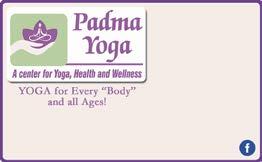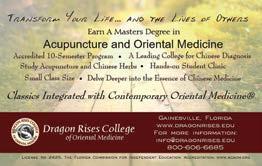
5 minute read
health briefs
Don’t Rely on Money for Happiness
People in the “poorest of the poor” communities in which money is not a high value can feel as happy as people in high-income Scandinavian countries, concludes new research from Canada’s McGill University. For the study published in PLOS One, interviewers studied 678 people living in Bangladesh and the Solomon Islands, both extremely low-income countries. People in remote fishing villages with subsistence-level incomes reported very high levels of “subjective well-being”, which they attributed to spending lots of time with family and being in nature. Villagers that had migrated to urban areas for work were more likely to gauge their well-being by economic and social factors, and reported lower feelings of wellbeing, leading researchers to speculate that monetization, especially in its early stages, may be detrimental to happiness. “When people are comfortable, safe and free to enjoy life within a strong community, they are happy—regardless of whether or not they are making any money,” says Chris Barrington-Leigh, a professor at McGill’s Bieler School of the Environment.
Advertisement
Nix Baby Foods that Harbor Toxic Metals
As convenient as store-bought baby food is, it can pose hidden dangers for infant brains, say U.S. congressional investigators. A report issued by the House of Representatives on February 4 found “dangerous levels of toxic heavy metals,” including arsenic, lead, cadmium and mercury, in baby foods made by major companies Hain Foods, Gerber, Beech-Nut and Happy Family Organics. Walmart, Campbell Soup Company and Sprout Organic Foods refused to cooperate with the investigation. On March 5, the U.S. Food and Drug Administration pledged to enact new standards, increase inspections and testing, and support research to lower baby food contaminants.
Low levels of exposure to heavy metals can cause serious, irreversible damage to children’s brain development, studies show. Naturally present in the environment, they enter baby foods through soil, water and air; companies attempt to minimize this impact through processing. In one example, Hain Celestial, which makes Earth’s Best Organic, says it no longer uses brown rice, which can harbor arsenic.

Sleep Deeply to Reduce Anxiety
A natural, non-pharmaceutical remedy for anxiety disorders that affect 40 million Americans is as close as our beds, say University of California at Berkeley researchers. In Nature Human Behaviour, they reported that a sleepless night can trigger up to a 30 percent rise in anxiety levels, but a full night of slumber stabilizes emotions. The type most apt to calm and reset the anxious brain is deep sleep, also known as non-rapid eye movement, slow-wave sleep during which neural oscillations become highly synchronized and heart rate and blood pressure drop.
The researchers used brain scans to identify anxiety levels in 48 volunteers after nights of deep or restless sleep. “Without sleep, it’s almost as if the brain is too heavy on the emotional accelerator pedal without enough brake,” says the study’s senior author Matthew Walker, professor of neuroscience and psychology. A second survey of 280 people online found that the amount and quality of sleep people experienced from one night to the next predicted how anxious they would feel the next day. Even subtle nightly changes in sleep affected anxiety levels.

Avoid Coffee When Pregnant to Safeguard Brain Development








A mother’s coffee drinking during pregnancy can change important pathways in an infant’s developing molostock/AdobeStock.com brain, raising the risk of behavioral issues, attention difficulty and hyperactivity years later, say researchers at the University of Rochester, in New York. Analyzing thousands of brain scans of 9- and 10-year-olds, researchers found clear changes in how white matter tracks, which form connections between brain regions, were organized in children whose mothers reported consuming caffeine while pregnant. “These are sort of small effects and it’s not causing horrendous psychiatric conditions, but it is causing minimal, but noticeable behavioral issues that should make us consider long-term effects of caffeine intake during pregnancy,” says John Foxe, Ph.D., principal investigator of the university’s Adolescent Brain Cognitive Development study. Previous studies have found that a fetus does not have enough of the enzyme necessary to break down caffeine when it crosses the placenta.









Sip Non-Alcoholic Beer to Improve Liver Disease
Non-alcoholic beer is booming, with U.S. sales up by 39 percent last year, and it now poses a health benefit as a study-proven dietary supplement for people with cirrhosis of the liver. Many nutritional supplements don’t work for such patients because of limited availability, cost, poor taste and side effects such as bloating, nausea and abdominal pain. Theorizing that non-alcoholic beer has the advantage of being inexpensive and easy to consume while having many anti-inflammatory and antioxidant compounds, Mexican researchers provided 43 liver cirrhosis patients with dietary improvements and simple exercise routines. Half the patients drank nonalcoholic beer with their meals; the control group drank water. After eight weeks, the non-alcoholic beer group showed improvements in blood vessel health, exercise performance levels and muscle mass, along with a better perceived quality of life compared to the control group.
“A clear trend towards an improvement in social function and mental health was observed in the group receiving non-alcoholic beer,” conclude the authors in World Journal of Hepatology. “Moreover, hops have been shown to improve symptoms of depression, anxiety and stress over a four-week period, partially explaining the results found.”
All classes are live in-studio and on Zoom. Teacher Training opens in August, 10-month program. Special Discounts. C Check our website for details. Thanks to all for your continued support of Padma Yoga. Office: (386) 225-4733 Cell: (904) 377-4217
5 Utility Drive, Suite 15, Palm Coast PadmaYogaOnline.com






